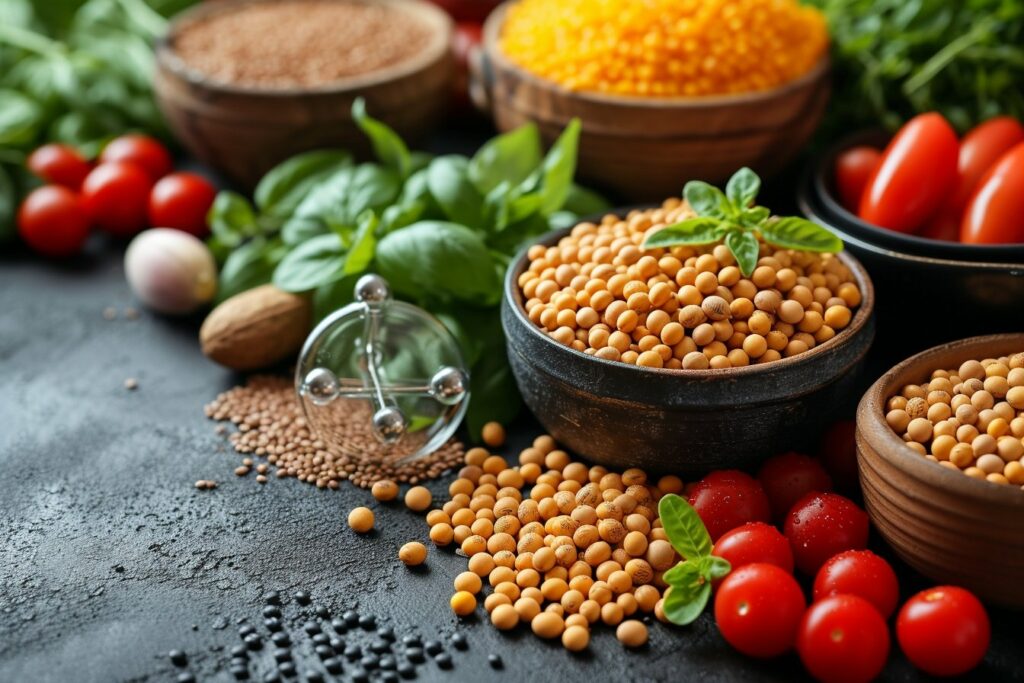In recent years, there has been increasing interest in the connection between diet and hormone levels. More specifically, food’s impact on testosterone, which plays a crucial role in numerous bodily functions for both men and women, including muscle mass development, bone density, and libido. Many foods can boost testosterone naturally, but some may negatively affect it. In this article, we will explore those culprits affecting this vital hormone.
The Culprits: Foods Affecting Testosterone
Some common foods found in our daily diets have been found to cause harm to testosterone production. Knowing what to watch out for can help maintain optimum hormonal balance. Here are five noteworthy offenders:
- Soy products
- Alcohol
- Mint
- Refined carbohydrates and sugars
- Processed meats
Soy Products: A Hormonal Compromise?
Derived from soybeans, soy is known as a rich source of protein, especially for vegetarians and vegans. However, studies suggest that consuming significant amounts of soy-based foods may reduce testosterone levels because they contain phytoestrogens – plant-derived compounds that mimic estrogen. As a result, high intake could contribute to hormonal imbalances.
Foods to beware:
- Tofu
- Tempeh
- Soy milk
- Edamame
- Soy-based protein powders
While research linking soy consumption to reduced testosterone is not yet conclusive, it may be wise to moderate the intake of these foods if concerned about hormone levels.
Alcohol: Damaging Effects on Testosterone
Excessive alcohol consumption can inflict numerous health issues. One lesser-known risk associated with heavy drinking is reducing testosterone production. Studies have found a negative correlation between alcohol intake and hormonal balance, with increased alcohol consumption resulting in lower testosterone serum concentrations.
Factors To Consider:
- The type of alcohol being consumed
- The quantity ingested
- The frequency of intake
The level and extent to which testosterone is affected will depend on these variables; however, overall, moderate drinking or avoiding alcohol altogether is advisable for anyone concerned about maintaining healthy testosterone levels.
Mint: A Surprising Hormonal Disruptor
Mint is known to hold several health benefits such as aiding digestion, improving oral hygiene, and alleviating headaches. However, recent research suggests that mint may have potential adverse effects on testosterone.
Spearmint vs Peppermint
A study conducted on rats revealed that spearmint could negatively impact testosterone. In contrast, the same effect was not observed in peppermint studies. Although human trials are far too few at this moment, some researchers recommend caution when consuming large amounts of mint, especially spearmint-based teas and supplements.
Refined Carbohydrates and Sugars: The Hidden Enemy
A diet rich in refined carbs and sugary snacks has long been associated with obesity, type 2 diabetes, and heart disease. But in addition to those well-known issues, excessive sugar consumption can lead to reduced testosterone levels. A high sugar intake will cause blood glucose levels to rise rapidly, followed by a release of insulin that can lead to lower testosterone production over time.
What To Avoid:
- Sugary beverages (sodas, sweetened coffees)
- Processed snacks (pastries, candies, cookies)
- Refined grains (white flour-based products)
- High fructose corn syrup
Opting for complex carbohydrates like those found in whole grains, fruit, and vegetables instead can ensure healthy blood glucose levels and maintain adequate testosterone production.
Processed Meats: The Hidden Testosterone Saboteur
Who doesn’t love some bacon in the morning? Processed meats are convenient sources of protein but consist mainly of unhealthy fats and preservatives. Research has discovered that diets high in unhealthy fats negatively affect testosterone production, while processed meat consumption may increase the risk of developing health issues such as heart disease and cancer.
Options To Limit:
- Bacon
- Sausages
- Hot dogs
- Salami
- Canned meat
For healthier protein options, incorporate wild-caught fish, lean poultry, grass-fed beef, fermented dairy products, and plant-based proteins into meals.
To preserve healthy hormone balance, it’s essential to be aware of which foods can harm testosterone levels. Make informed choices about dietary habits, avoiding or reducing the consumption of items containing soy, excess alcohol, spearmint-based teas, refined carbohydrates, sugars, and processed meats. By taking conscious control over diet, one can promote overall well-being and maintain healthy testosterone levels without external supplementation.

